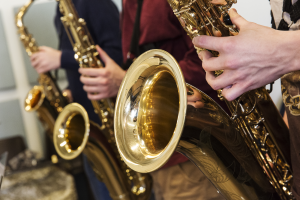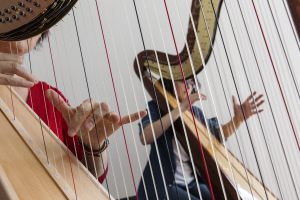Erasmus Charter for Higher Education 2014-2020
Erasmus Policy Statement
Mantua Conservatory will continue to select its partners by assessing first and foremost the training programmes that these partners propose, taking care to ensure that its network of contacts covers the greatest possible geographical area. An awareness of the variety and level of the training offered by the various institutes will thus help us to optimize our own offer of instruction, so as to make it more usefully applicable in the broadest possible market. With regard to this, STA and STT mobility are of particular relevance, as in a very short time they are capable of allowing the educational strategies and targets to be adopted in order to achieve the desired results to be more fully understood. With those institutes already offering training programmes corresponding to our own, as soon as possible we will attempt to commence procedures for the achievement of joint and double degrees, so as to make the qualifications awarded more easily acceptable and applicable in different countries.
In addition, the possibility of establishing links with organizations (orchestras) capable of demonstrating and enhancing the preparation of our students is deemed to be of great importance, using this direct experience to give an unequivocal and irreplaceable impression of what the world of work realistically expects by way of training. With regard to this, already this year our conservatory invited Stefano Succi, deputy leader of the second violins of the Frankfurt Radio Symphony Orchestra, to hold a masterclass, and the type of work he proposed and the methods he used were of great interest for both students and teachers.
With regard to collaboration with non-EU countries, we will work towards the possibility of forming links with Asian orchestras, which have already shown their significant admiration for the training offered by our conservatory, given the growing requests for admission to our level II academic courses received from Chinese students. The possibility of establishing relations that would permit periods of training with these orchestras will allow our students to discover the conditions and opportunities of work offered by an area of the world that is increasingly interested in and appreciative of western musical culture.
To make as many students as possible aware of the level of preparation reached by their fellow students in foreign institutes and the various teaching strategies used by their teachers, Mantua Conservatory intends to develop projects of cooperation with its partners focusing on the area of ensemble music (chamber music ensembles, wind orchestras, operatic symphony orchestras). This activity makes it in fact possible to bring together a number of students with different training experiences, who will communicate and compare moment by moment, with concrete examples, the validity of the training received, with the intention of reaching an ambitious objective of common interest, namely an impeccable musical performance.
The intention of offering these geographically heterogeneous musical groups a course of lessons given by several instrument and ensemble music teachers from the various participating institutes is an integral part of the project, permitting a reciprocal development of professional expertise and an inevitable mutual enrichment.
inally, the idea will be completed by the involvement of the composition classes of the various institutes, which will be invited to produce an original repertoire for the musical groups to be formed.In the definition of this project, particular attention must be dedicated to the distribution of the economic costs envisaged for each participant, so as to overcome situations of social and economic disadvantage, or even of physical impairment, that could limit or prevent the participation of some students or teachers, or even of entire institutes, thereby risking the loss of the opportunity to be enriched by their experiences as well.
The panorama of the modern world is evolving rapidly and continuously in all sectors, including that of work. New opportunities are being constantly created in response to growing and changing needs linked with the emergence of new cultures and/or interactions between these cultures. On this panorama, it is the duty of high culture to present itself dynamically to respond to the changing requirements of the world of work, and to succeed in predicting the professional profiles that will be requested in the near future, so as to be able to promptly offer adequate training programmes.
To perform this duty, the path to follow becomes therefore that of maintaining contacts with the greatest possible number of interlocutors involved in the world of training and production, so as to constantly exchange, compare, assess and perfect the product being offered.
Only by being aware of what surrounds us can we find original inspirations and ideas that can contribute in the growth (diffusion and development) and enhancement of our various cultures, thereby becoming active protagonists also in the rectification of situations of economic and social disadvantage and the respect of human rights.
Consequently, for the coming years Mantua Conservatory has adopted the indispensable objective of extending its network of contacts with other institutes of high culture and the sector of enterprises present in Europe and in the world in general, reinforcing existing contacts and establishing new ones to achieve the crucially necessary dynamic process described earlier.
The promotion of an open, attentive and dynamic culture that can generate adequate professional skills and that can consequently intuitively identify possible new market openings must inevitably and increasingly be financially sustained by the entrepreneurial activities that will reap the ultimate profit, in terms of the enhancement of the human resources available, and also from the economic viewpoint.
The world of work will also be explored as a source of models that can be adapted to achieve better organization in the management of human and financial resources, so as to concentrate their efficacy and utilization in training programmes.






